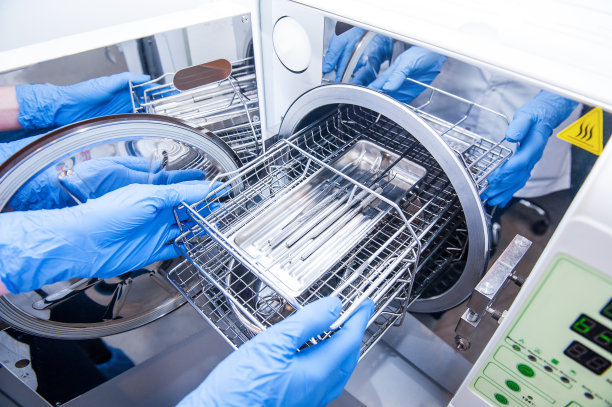Revolutionizing Smiles and Confidence Through Advanced Dental Implant Technology for a Healthier Tomorrow
Summary: The advent of advanced dental implant technology has transformed the landscape of oral healthcare, offering innovative solutions that enhance smiles and boost confidence. This article explores how these groundbreaking implants not only restore functionality but also improve psychological well-being. By examining their impact on quality of life, the safety and effectiveness of modern procedures, the role of patient education, and the significance of technological innovations, we gain insights into a healthier tomorrow. Join us as we delve into how these advancements are revolutionizing dental care and empowering individuals to embrace a brighter, more confident smile.
1. Enhancing Quality of Life Through Dental Implants

Dental implants have emerged as a vital solution for individuals suffering from tooth loss. By mimicking the structure and function of natural teeth, implants help restore the ability to chew effectively, thus significantly improving dietary choices. This enhancement goes beyond eating; it impacts overall health and nutrition. When individuals are no longer limited by missing teeth, they are more likely to maintain a balanced diet needed for optimal health.
Moreover, the aesthetic benefits associated with dental implants cannot be overstated. Aesthetically pleasing smiles contribute to higher self-esteem and social confidence. When people feel good about their smiles, they are more likely to engage socially and professionally without the embarrassment caused by gaps or missing teeth. This positive shift in self-perception is invaluable, impacting various facets of life, including relationships and career advancements.
Additionally, dental implants also promote better oral health. Unlike traditional bridges or dentures, which may rely on adjacent teeth for support or can shift in the mouth, implants are anchored directly to the jawbone. This leads to improved oral hygiene, reducing the risk of conditions like gum disease and cavities in nearby teeth. Consequently, individuals with implants often enjoy overall improved dental health.
2. Safety and Effectiveness of Modern Procedures
One of the most important considerations in dental care is the safety and effectiveness of procedures. Modern dental implants are designed with advanced materials that are biocompatible, minimizing the risk of rejection. Skilled professionals utilize state-of-the-art technology to create precise implant placements, significantly enhancing the success rate of these procedures. Clinical studies have shown high success rates, often exceeding 95%, for dental implants when performed by well-trained clinicians.
Moreover, the techniques used in implant placement have evolved over the years. Minimally invasive procedures reduce recovery time and discomfort, allowing patients to return to their daily lives more swiftly. Innovative techniques, such as computer-guided surgery, further ensure accurate placement of implants, which is essential for functional and aesthetic outcomes.
Furthermore, advancements in anesthesia and pain management mean that the implant procedure itself is less daunting for patients. Many report feeling little to no pain during the surgery, allowing individuals to focus on the positive outcome rather than the procedure itself. Safety protocols are also stringent, ensuring that each step is mindful of patient health and well-being.
3. The Role of Patient Education in Dental Care
Patient education is crucial in maximizing the benefits of dental implants. Knowledge empowers individuals to make informed choices about their dental health, including understanding the process, benefits, and potential risks associated with implants. Dental professionals play a pivotal role in providing patients with comprehensive information that outlines maintenance, care, and expectations after receiving implants.
Moreover, educational seminars and resources can demystify the procedures, alleviating fears and anxieties. Informed patients are more likely to adhere to post-operative care guidelines, leading to successful outcomes and longer-lasting implants. Additionally, they tend to be more proactive about their oral health, seeking regular check-ups and adhering to routine care.
Support groups for those with dental implants also foster a community of sharing experiences and advice. Hearing from others who have undergone similar procedures can provide reassurance and build confidence in the decision-making process. Ultimately, education not only enhances the individual experience but also improves the overall success of dental implant procedures.
4. Innovations Shaping the Future of Dental Implants
The future of dental implants looks promising due to continuous advancements in technology. Innovations such as 3D printing and CAD/CAM (computer-aided design and computer-aided manufacturing) are revolutionizing how implants are created and measured, ensuring a perfect fit for each patient. Such customization enhances the effectiveness of the implants and streamlines the production process.
Additionally, regenerative medicine is paving the way for improved healing techniques. By utilizing growth factors and stem cells, dental practitioners can expedite the regeneration of bone and soft tissue post-surgery, leading to faster recovery times and improved implant stability. These advancements encourage longer-lasting implants, thus reducing the need for replacements or additional procedures.
Moreover, advancements in tele-dentistry allow patients to receive remote consultations and follow-ups, making dental care more accessible. This accessibility is crucial for the older population or individuals with mobility issues, ensuring they receive timely care without excessive travel burdens. By harnessing technology in all aspects of dental care, accessing high-quality treatment becomes more efficient.
Summary:
The exploration of advanced dental implant technology highlights the profound impact these solutions have on individuals lives, enhancing their quality of life and self-confidence while ensuring safety and effectiveness. Through education and continuous innovation, the future of dental care looks brighter, promising healthier and happier smiles for countless individuals.
This article is compiled by Vickong Dental and the content is for reference only



